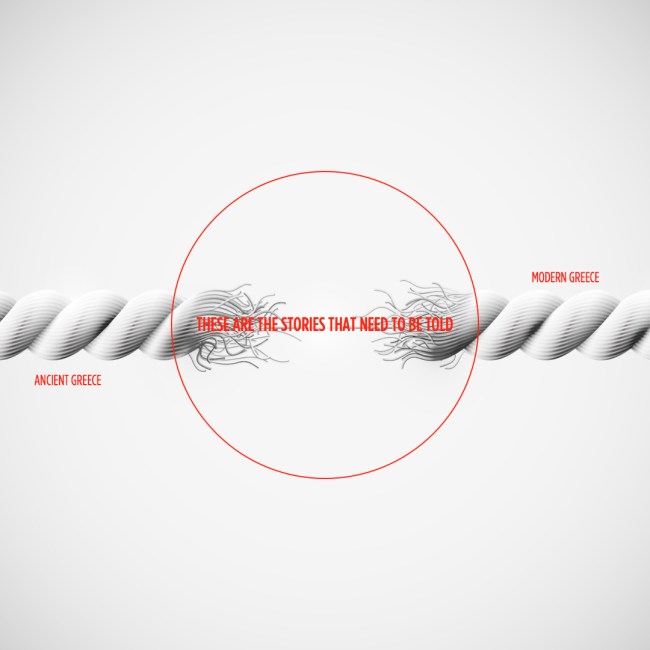You get it back.
And it’s so effortless.
They send you an email and tell you they found it.
Then they ask you how you’d like to get it back.
“When you next visit Switzerland? Or should we send it to you by Fedex?”
Choose option A if you live in Greece.
Because here’s what happens next ….
It gets stopped at customs.
And no matter how much you protest and explain that you bought it in Greece and it’s used and it’s scratched and you can prove that it’s yours because it’s full of your personal data – you’ll hear the shrug of shoulders on the telephone.
“Ti na sas po…”
And here’s what happens next ….
You go to the customs hall (hell) at the airport.
And the nightmare begins.
First office.
Five people behind the counter, one in front of the counter.
Me.
After 20 minutes I asked … “Can anyone tell me how long I will be here? I have a life to live …”
And five people reluctantly leave their frappe to look up at you.
And one answers on behalf of them all.
“Ti na sas po…”
And I reminded them that they worked for the public service and that I was “the public” and that I was one of those who pay the taxes which pay their salaries. Heresy!
But they slowly got into gear and stamped my piece of paper and sent me on my way … to Office Number Two located in the building next door.
And here’s what happens next …
The same.
Five offices, five buildings, eleven people and two hours later and I’ve been assessed.
€150 for a used portable hard drive that I left behind on a Swiss train and was stupid enough to choose option B. But how was I to know? This is 2015 is it not?
And here’s what happens next …
I lined up to pay.
And the cashier growled at me.
And I asked her “what’s your problem?”
And she said “I’ve been here since 8am this morning.”
It was midday.
And I lost it ….
“I’ve been here since 9am and I’m not getting paid to be here like you are.”
This is the problem with Greece.
All this talk of protecting pensions and the minimum wage and rehiring public servants (the irony) is all about perpetuating this system.
The real solution for Greece is to encourage what I have called “the restless ones.”
The creative people. The courageous people. The unemployed people. The people who understand that if they don’t do something, nothing will happen.
Here is what Steve Jobs had to say…
“When you grow up you tend to get told the world is the way it is and your life is just to live your life inside the world. Try not to bash into the walls too much. Try to have a nice family life, have fun, save a little money.
That’s a very limited life. Life can be much broader once you discover one simple fact, and that is – everything around you that you call life, was made up by people that were no smarter than you. And you can change it, you can influence it, you can build your own things that other people can use.
The minute that you understand that you can poke life and actually something will, you know if you push in, something will pop out the other side, that you can change it, you can mold it. That’s maybe the most important thing. It’s to shake off this erroneous notion that life is there and you’re just gonna live in it, versus embrace it, change it, improve it, make your mark upon it.
I think that’s very important and however you learn that, once you learn it, you’ll want to change life and make it better, cause it’s kind of messed up, in a lot of ways. Once you learn that, you’ll never be the same again.”
Think different.
It’s the way forward.








